#the fiddler jr
Explore tagged Tumblr posts
Text
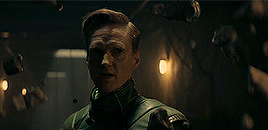







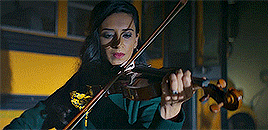

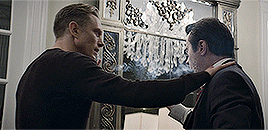

The Injustice Society of America + "Kill or be killed"
#stargirl#dctv#isa#icicle#icicle jr#henry king#brainwave#brainwave jr#the fiddler#the fiddler jr#dragon king#shiv#jordan mahkent#joey zarick#the wizard#isaac bowin#cindy burman#cameron mahkent#anaya bowin#tkv gifs#hn gifs#artemis crock#sportsmaster#crusher#paula crock#larry crock#tigress#too bad becky didn't get the chance to choose violence yet lol#dc villains#stargirl spoilers
61 notes
·
View notes
Photo

Profiles in Villainy
Fero, the Fiendish Fiddler
The mysterious cad known as Fero, the Fiendish Fiddler possessed a magical fiddle whose notes could bend the properties of space and time. Fero used this fiddle to attempt to transport the heroic Impossibles to another world. Fortunately the heroes prevailed and The Fiendish Fiddler was defeated.
The villain name and maniacal intentions were a play on the Ancient Roman Emperor, Nero. Fero was voiced by actor Don Messick and appeared in an episode of Frankenstein Jr. & The Impossibles that aired on October 8th, 1966.
#Profiles in Villainy#Fero the Fiendish Fiddler#The Impossibles#Frankenstein Jr. & The Impossibles#Don Messick#cut-out#paper art#Villains!
9 notes
·
View notes
Photo
Rest in power, Louis Gossett Jr.




#louis gossett jr#roots#roots 1977#fiddler#alex haley#kunta kinte#levar burton#roots my gif#this scene though - i was gone#old gifs
497 notes
·
View notes
Text
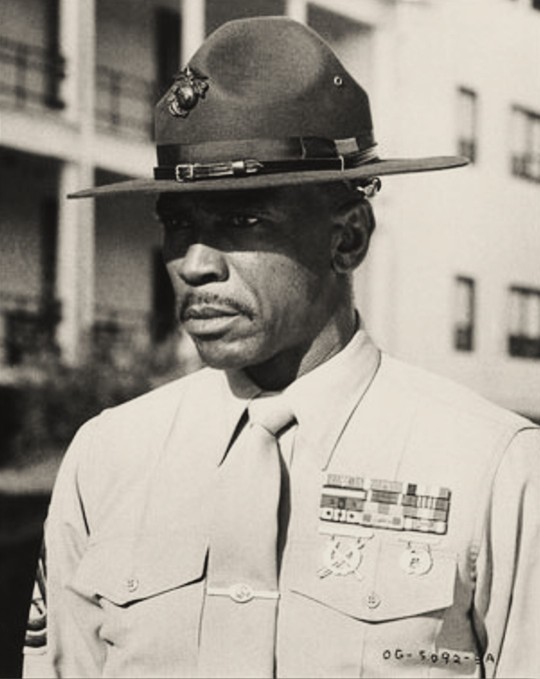
The actor Lou Gossett Jr, who has died aged 87, is best known for his performance in An Officer and A Gentleman (1982) as Gunnery Sergeant Emil Foley, whose tough training transforms recruit Richard Gere into the man of the film’s title. He was the first black winner of an Academy Award for best supporting actor, and only the third black actor (after Hattie McDaniel and Sidney Poitier) to take home any Oscar.
The director, Taylor Hackford, said he cast Gossett in a role written for a white actor, following a familiar Hollywood trope played by John Wayne, Burt Lancaster, Victor McLaglen or R Lee Ermey, because while researching he realised the tension of “black enlisted men having make-or-break control over whether white college graduates would become officers”. Gossett had already won an Emmy award playing a different sort of mentor, the slave Fiddler who teaches Kunta Kinte the ropes in Roots (1977), but he was still a relatively unknown 46-year-old when he got his breakthrough role, despite a long history of success on stage and in music as well as on screen.
Born in Sheepshead Bay, Brooklyn, Louis was the son of Helen (nee Wray), a nurse, and Louis Sr, a porter. As a child he suffered from polio, but became a high school athlete before a basketball injury led to his joining the drama club. His teacher encouraged him to audition professionally, and at 17 he was on Broadway playing a troubled child in Take a Giant Step, which won him a Donaldson award for best newcomer.
He won a drama scholarship to New York University, but continued working, in The Desk Set (1955), and made his television debut in two episodes of the NBC anthology show The Big Story. In 1959 he was cast with Poitier and Ruby Dee in Raisin in the Sun, and made his film debut reprising his role in 1961. On Broadway that year he played in Jean Genet’s The Blacks, in an all-star cast with James Earl Jones, Cicely Tyson, Roscoe Lee Brown, Godfrey Cambridge and a young Maya Angelou; it was the decade’s longest-running show.
Gossett was also active in the Greenwich Village folk music scene. He released his first single Hooka Dooka, Green Green in 1964, followed by See See Rider, and co-wrote the anti-war hit Handsome Johnny with Richie Havens. In 1967 he released another single, a drums and horns version of Pete Seeger’s anti-war hymn Where Have All the Flowers Gone. He was in the gospel musical Tambourines to Glory (1963) and in producer Mike Todd’s America, Be Seated at the 1964 New York World’s Fair.
His plays became more limited: The Zulu and the Zayda and My Sweet Charlie; the very short run of Carry Me Back to Morningside Heights, in which he played a black man owning a white slave; and a revival of Golden Boy (1964), with Sammy Davis Jr. His final Broadway part was as the murdered Congolese leader Patrice Lamumba, in Conor Cruise O’Brien’s Murderous Angels (1971). Gossett had played roles in New York-set TV series such as The Naked City, but he began to make a mark in Hollywood, despite LAPD officers having handcuffed him to a tree, on “suspicion”, in 1966.
On TV he starred in The Young Rebels (1970-71) set in the American revolution. In film, he was good as a desperate tenant in Hal Ashby’s Landlord (1970) and brilliant with James Garner in Skin Game (1971), taking part in a con trick in which Garner sells him repeatedly into slavery then helps him to escape.
In 1977, alongside Roots, he attracted attention as a memorable villain in Peter Yates’s hit The Deep, and got artistic revenge on the LAPD in Robert Aldrich’s The Choirboys. The TV movie of The Lazarus Syndrome (1979) became a series in which Gossett played a realistic hospital chief of staff set against an idealistic younger doctor. He played the black baseball star Satchel Paige in the TV movie Don’t Look Back (1981); years later he had a small part as another Negro League star, Cool Papa Bell, in The Perfect Game (2009).
After his Oscar, he played another assassinated African leader, in the TV mini-series Sadat, reportedly approved for the role by Anwar Sadat’s widow Jihan. Though he remained a busy working actor, good starring roles in major productions eluded him, as producers fell back on his drill sergeant image. He was Colonel “Chappy” Sinclair in Iron Eagle (1986) and its three dismal sequels.
But in 1989 he starred in Dick Wolf’s TV series Gideon Oliver, as an anthropology professor solving crimes in New York. And he won a best supporting actor Golden Globe for his role in the TV movie The Josephine Baker Story (1991). He revisited the stage in the film adaptation of Sam Shepard’s Curse of the Starving Class (1994).
Gossett twice received the NAACP’s Image Award, and another Emmy for producing a children’s special, In His Father’s Shoes (1997). In 2006 he founded the Eracism Foundation, providing programmes to foster “cultural diversity, historical enrichment and anti-violence initiatives”. Despite an illness eventually linked to toxic mould in his Santa Monica home, he kept working with a recurring part in Stargate SG-1 (2005-06). A diagnosis of prostate cancer in 2010 hardly slowed him down.
Most recently, he played Will “Hooded Justice” Reeves in the TV series Watchmen (2019), in the series Kingdom Business, about the gospel music industry, and in the 2023 musical remake of The Color Purple.
His first marriage, to Hattie Glascoe, in 1967, was annulled after five months; his second, to Christina Mangosing, lasted for two years from 1973; and his third, to Cyndi (Cynthia) James, from 1987 to 1992. He is survived by two sons, Satie, from his second marriage, and Sharron, from his third.
🔔 Louis Cameron Gossett Jr, actor, born 27 May 1936; died 28 March 2024
Daily inspiration. Discover more photos at Just for Books…?
22 notes
·
View notes
Text
Am I Born to Die? || Sean MacGuire x f!OC
Fic Summary: A former fiddler in a traveling band reminisces on her short time in the Van Der Linde gang in the year 1889 through memories and letters. During a time when seeking a fresh start from a path of crime led to finding kinship, love and a hell of a lot more trouble.
Chapter Warnings: Mentions of alcoholism, domestic abuse, murder, violence and derogatory language
Pairings: Sean x f!OC some implications of Arthur x f!OC
Characters: (in this chapter) Sean Maguire, Arthur Morgan, Charles Smith
Wordcount: 2,801
Prologue || Chapter 1
Notes: One thing I failed to mention : This story takes place over the course of 7-9 months (still undecided). It's loosely based on the canon time line of R2R2 but doesn't follow it precisely. The reason being that I have not finished the game yet, and don't want to spoil it for myself by doing too much research.
As always, I would love some feedback! I'm open to suggestions and constructive criticism! If you'd like to be tagged for future chapters, let me know!
Thanks for checking out my work!
My Pa use to say that my memory was as sharp as a whip. And believe me, coming from that old bastard, it was not meant to be a compliment.
He was born in Dublin, Ireland as Seamus Donoghue Jr. I learned, much later in life, that he changed it to “Shane Donahue” to sound less Irish when set foot in America as a young man looking for work. He came from a dirt poor, hungry family of three brothers and a widowed mother in hopes of earning some money to send them. I often imagine my poor gran had high hopes of her eldest son not turning out like his father, who was stabbed in a pub after he swindled the wrong man out of a game of cards. But after serving 2 years in the US military, her Seamus came out a wounded, bitter drunk, and dead before his time, just like his Pa.
Maybe I turned out more like my grandfather than I’d care to admit. I happen to be rather good at swindling myself, and have never been stabbed. But if you asked my father, despite getting his straw-colored hair and fair skin, I was every bit like my “good-for-nothin’, god-damned-squaw of a mother”. These were the words I usually heard before he put down the bottle and reached for the belt to give me a good beating for “back talking”, when all I was doing was pointing out how his drinking was the reason we had no money. My mother wasn’t afraid to say this to his face either.
My mother, Claire Donahue was actually half-French, half-American Indian. Her own mother taken all but forcibly from her tribe up North and married at seventeen to a French soldier. He ventured South in search of gold and then abandoned her with a house full of his children, most of whom died. My poor mother was destined to live a harsh life, and struggle was all she knew but she was intelligent and strong-willed.
I never understood what she saw in my father, besides an escape from a troubled past and perhaps a hope for something more.
The only thing he was always good at, was playing the fiddle, and his chirpy Irish tunes never failed to draw a crowd and a few coins if we needed them. He used to say that music was just one of those things that made the world seem brighter, even if it was cold and cruel most of the time.
I don’t know much about their life before I was born. They met near Georgia where both had ended up when they were young. They wrote each other all throughout the time he served in the war. His foot was blown half off by shrapnel, and she loved him enough to still marry him when he was discharged, despite knowing he couldn’t provide much. If it wasn’t his foot that slowed him down, it was his mouth costing him work after he’d had too much to drink.
My mother did her best to support us and worked in the kitchen of a rich aristocratic family in West Georgia before she was wrongly charged with thievery of their gold, and hanged when I was seven years of age.
I knew she didn’t steal that gold. If she had, we wouldn’t have been eating potato stew and living in a leaky shack, barely scraping by with what was left after my father’s drinking. I don’t know why that family wanted her dead so badly, but it never sit right with me. Maybe she heard or saw something she shouldn’t have or maybe they were just so cruel to take a woman from her child. All I know is that it sparked a rage that would never leave me. I wanted to torch their house once when I was older but my father talked me out of it.
“You’re all I’ve got left, Millie.” He told me. “If I have to watch you swing too, I’ll surly drink meself to death. I’ll end up in the depths of hell along with you. Is that what you want?”
I hate that his selfish, manipulative words could soften me. There were times I believed that man really did care about me as more than just a work horse or a dowery, and part of me still does. I’ve always forgiven him more than I should, because I felt he didn’t ask for the shit hand life dealt him, even if it turned him into a miserable drunk. I knew in my heart, he wasn’t all bad.
………….
I was with the Van Der Linde gang for nearly a year. Three seasons passed, but in my memories it feels like a lifetime. I think I knew all along that I wasn’t like them.
I was more than intimidated, in those first days I was getting acquainted. Here I was, a penniless, wandering fiddler without a band and without a fiddle. - It had fallen off the train back in Wallace - being welcomed by folks who were, for all I knew, blood thirsty criminals like you read about in stories.
I had robbed or swindled only a few men in desperate times. Shot a few, too, but only because they would have shot me first, or far worse. Every time I had, I prayed for their souls, as well as my own, and said as many hail Mary’s I felt necessary.
But these Van Der Linde people made my skin crawl with the way some of them laughed about people they’d killed for a few coins or a pocket watch. They talked about being at war with other gangs known as the Pinkertons and the O’Driscolls. They enjoyed killing as much as country folk during hunting season. I tried not to show how scared I was to sleep next to them those first few days. I mostly just kept to myself, kept quiet, and contemplated whether or not they’d hunt me down and shoot me if I just took off in the night with one of their horses.
Before we eventually reached our camp in Colter, they were talking about a heist in Blackwater. Robbing a bank wasn’t something I would have ever done willingly before meeting them, but I felt I was too deeply involved to back out, even just a few days in. And honestly, I wondered if it was exciting as they made it sound with your heart pumping as you rode out with a sack full of rich men’s money.
We were headed up the mountain, moving camps every few days. The air was getting more crisp and skiffs of snow appeared on the trees and the cold, rocky ground. For a few days, we found an abandoned mine shaft to keep us out of the wind and set up our tents and wagons, but we all knew that soon we’d need real shelter.
Dutch Van Der Linde seemed like a man who was both dangerous and exhilarating. He carried himself in a way that I knew the gang respected. Even when he didn’t seem sure of himself. He was someone who treated them all with love and loyalty as long as they gave it back. Called the younger men his “sons” and the older ones his “brothers”. Though something told me he’d cut the throats of any one of them without hesitation if they crossed him.
It didn’t take me long to reason that most of them weren’t as tough as they talked, and some were not as dangerous as they looked.
I took to Arthur quickly. He took me out hunting game my first day in camp, just to help keep me in Dutch’s good graces and show him I could pull my weight. Arthur was always doing that, helping the gang out, but in a ways you didn’t realize that was his intention until after his good deed was done. Any sort of praise seemed to embarrass him. He preferred that we all believed he had a heart made of stone instead of a tender one, but anyone with two eyes could see how much he cared about the gang.
Within a few weeks of me telling him I’d lost my fiddle, he returned to camp with a new one he had stolen out of a wagon. I couldn’t help myself. I threw my arms around him and thanked him. He just hugged me back stiffly and muttered that it wasn’t necessary, but I think I saw a little pink in his cheeks when I pulled away.
There was a lot of hurt in those deep blue eyes of his, however, that I dared not ask about. He rarely smiled and seemed to prefer to work alone. Arthur could be tough as nails when he needed to, but he was as good a man as they came, if he cared about you.
Charles Smith wasn’t like the rest, either. Strong, silent and handsome in a way that some of the women, myself included, couldn’t help but stare when he walked by. His broad chest and firm, bulging arms turned my face a new shade of red the first time I saw him without a shirt.
I could tell early on that he was one of the good ones, by nature. He seemed very serious. Worked hard, spoke very little, but I felt safe around him. Half-American Indian, like my mother, so I knew he was good people.
He caught me crafting a pair of buckskin gloves by the fire in our cave one day about two weeks after I arrived. Mr. Pearson had a lot of requests from the gang as we were approaching colder weather and was falling behind. I knew how to work with leather, and I needed something to do to keep busy, and warm. I had a flask of bourbon that was helping with this, which I seldom drank, but the wind that night was something else and Karen had offered it to keep me warm. I was starting to feel a bit tipsy, and no more warmer, but I could still focus on what I was doing.
Charles was standing by, warming his hand and watching my stitch work, while Sean Macguire sat on the other side of the fire. He was keeping warm in his own way of wildling a chunk of wood, drinking much more than me and singing an Irish tune that sounded like one my Pa used to sing. Only Sean was singing it wrong and I was trying to ignore him.
Charles seemed to be, too as he pointed to the gloves. “Looks good.” He told me. “Did you soften the hide first?”
I gave him a shy smile and nodded. “With oil, yes.” I’d barely heard Charles speak to anyone before that moment, and I found him so intriguing. I wanted him to keep talking to me.
“My mother was half-Indian, you know.” I added. This seemed to peak his interest. “That so? What tribe?” I was about to answer Charles when I heard a sound coming from the other side of the fire that could rival a braying donkey.
“HA!” Sean slapped his knee as I looked up at him slowly, and unamused. “You don’t look half-Indian to me.”
Sean and I had gotten off on the wrong foot, when he’d shoved a gun in my face on that train. After I had shot the lawman tailing him and Arthur, he had thanked me on the way back to camp, as though I had done it to save his life. I told him that if the man hadn’t showed up, the bullet would have gone in his head. After that, he sort of avoided me, which was just fine.
I could tell early on that he was the sort of person that got under everyone’s skin. He seemed to think his only duty was to serve as the camp jester. I had once heard Molly O’Shea, Dutch’s Irish lady, mutter that he was an embarrassment to the whole country.
He did seem to brighten their moods during the times he wasn’t pestering them, and the way he spoke almost made me miss my father. Arthur said it didn’t happen often, but like many of the men, if he’d been holed up in camp too long and drank past his limit, Sean would be itching for a chance to show off and pick a fight with someone. I felt the opposite of missing my Pa, then.
“I never said I was half-Indian,” I responded to his ignorant statement. “I said my mother was.”
“Well, you look full-Irish.” Sean responded in an accusatory way.
I started to rise from the stump where I was sitting. “Are you calling me a liar?”
“Yes, I am.” He gave a firm nod.
I decided it better not to bash him in his stupid mouth like I wanted to and not give him the satisfaction. I sat back down, trying to let my anger settle and went back to my stitching. “What the hell do you know? Eejit..” I repeated my father’s favorite insult under my breath, which only encouraged him.
He gave a scoff “Eejit,” he mimicked and laughed again. “You’ve even got a bit of an Irish brogue that comes out after a few drinks, dont’cha?”
I continued to ignore him growing increasingly furious and embarrassed in front of Charles who had gone quiet.
“An’ by the way,” Sean lowered his feet from the log they’d been resting on with a graceless thud to lean forward. “I saw how you write your name in the ledger, Miss Donahue. It’s Donoghue.” He enunciated the ‘Oh’ sound. “With an ‘O’. That’s how we spell it in Ireland.”
“I don’t care how it’s spelled in Ireland.” I shot back, still refusing to dignify the argument he was trying to start, for the most part.
“Well ya should care. Who are ya trying to fool? Spellin’ an Irish name like it’s English.”
I sneered at him. “‘ 'least I can write my name.” I watched his scowl deepen to my satisfaction. Apparently I’d struck a nerve. “It’s the way my father spelled it.” I added.
“Then it’s your father who’s the eejit, not me.” He snapped back.
My blood boiled. I picked up the knife next to my hand I had been using to cut my stitches and lunged across the pit, with the full intention of slicing off his ear. I grabbed him by the front if his jacket. We started to go down into the snow, and Charles tried to intervene, calmly.
Arthur, who was walking over with an armful of firewood saw what was going on and let the logs fall to rush over and pull me off of Sean. He stood between us, his hands pushing us apart. “Hey! HEY!! Enough!!” He scolded us like we were his two children roughhousing. “Goddamn fools, both of you! Christ sake… there are more important things that need to be done around here than rip each other’s throats out! We got enough to worry about.”
Sean and I were still trying to catch our breath, shooting glares at each other over Arthur. I lowered the knife.
“Don’t let Dutch see you acting like this,” Arthur told the both of us. “We gotta keep our heads before we get to Blackwater. Got it?” He looked from Sean’s face to mine waiting for an answer. I jabbed my finger at Sean.
“Talk about my family again and I’ll cut you open.” I said sharply. Then I turned to leave the fire pit, before I got mad enough to act on my threat, but the bastard had to have the last word.
He seemed quite insulted to have been nearly maimed by a woman in front of his colleagues. “Yeah? Well…I’d like to see you try!” he called after me “Scrawny Irish wench!”
Arthur picked up that stupid-looking bowler hat Sean always wore, which I had knocked off in the scuffle and shoved it into his chest. “Knock it off, Sean! Put the bottle down and do some damn work. Before I cut you open.” he let out a sigh and shook his head. “You and your damn mouth, boy.” I would have smirked to myself at Arthur reprimanding him, as I ducked into my tent still fuming, but I was in no laughing mood.
Like I said, Sean and I didn’t get off on the right foot, and I didn’t think, after that incident, that the young man would ever do anything but infuriate me. But this was one time when my first impression was incorrect. As Mary-Beth would say, you can’t always judge a book by the first chapter.
#sean macguire x reader#sean macguire x oc#rdr2 fanfic#arthur morgan x oc#rdr2 fandom#canon x oc#sean macguire#enemies to lovers
4 notes
·
View notes
Text
even the oldest mutuals don't know that i had a brief Wicked The Musical phase in like 2006ish - 2009ish (partly thanks to discovering adam lambert understudied fiyero at one point) (I even auditioned for my jr high production of fiddler on the roof with defying gravity and scored the role of hodel) and the movie has unleashed brain chemicals not experienced in fifteen years
4 notes
·
View notes
Text
Vulture: Louis Gossett Jr Dead: Oscar Winner and 'Roots' Star Was 87
7 notes
·
View notes
Text
AMfP Paintings Part 1
This is the first part of my file on the paintings and a couple of other images found in the game. I haven’t been able to identify all of them, since some are obscure (I’m looking at you, Mr Herring), but the majority are relatively well-known paintings. For the second part see here.
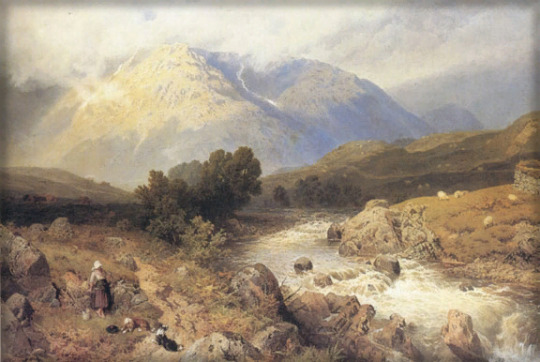
Title: Highland Scene near Dalmally Artist: Myles Birket Foster Year: c. 1885

Title: Spring Morning Artist: William J. C. Bond Year: 1863

Title: Dalton Collecting Marsh-Fire Gas Artist: Ford Madox Brown Year: 1887
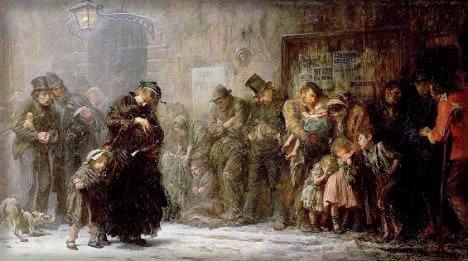
Title: Applicants for Admission to a Casual Ward Artist: Luke Fildes Year: 1874
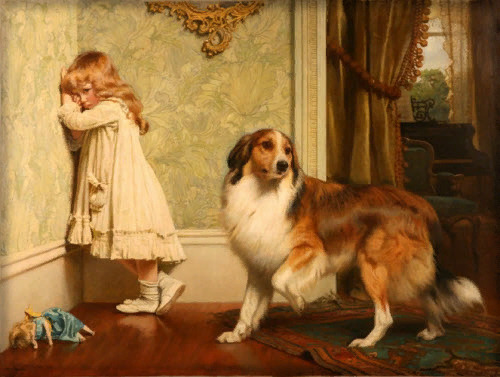
Title: A Special Pleader Artist: Charles Burton Barber Year: 1893
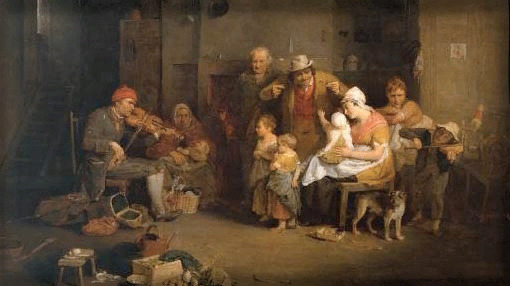
Title: The Blind Fiddler Artist: David Wilkie Year: 1806

Title: The Babylonian Marriage Market Artist: Edwin Long Year: 1875

Title: Farmyard Friends (Farmland Friends?) Artist: John Frederick Herring Jr
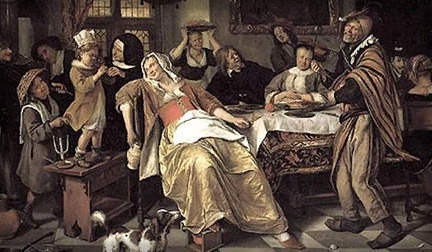
Title: The Bean Feast Artist: Jan Steen Year: 1668
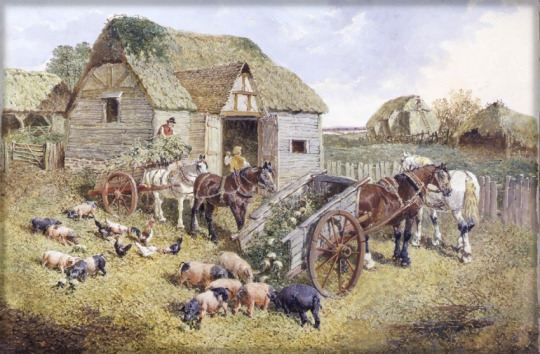
Title: The Turnip Cart Artist: John Frederick Herring Jr

Title: The (Great) Tower of Babel Artist: Pieter Bruegel Year: 1563

Title: New, Old Pig on the Block Artist: Ian Schoenherr Year: 2012 About: a remake of Schoenherr's earlier picture ‘Young Pig Lincoln’, based on a photo of William Wallace Lincoln
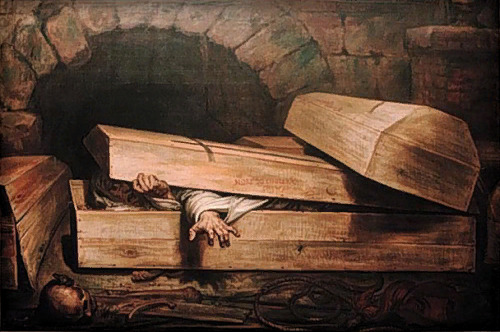
Title: The premature burial Artist: Antoine Wiertz Year: 1854

Title: The Death of Sardanapalus Artist: Eugène Delacroix Year: 1827

Title: Triptych of the Temptation of St. Anthony Artist: Hieronymus Bosch Year: c. 1501
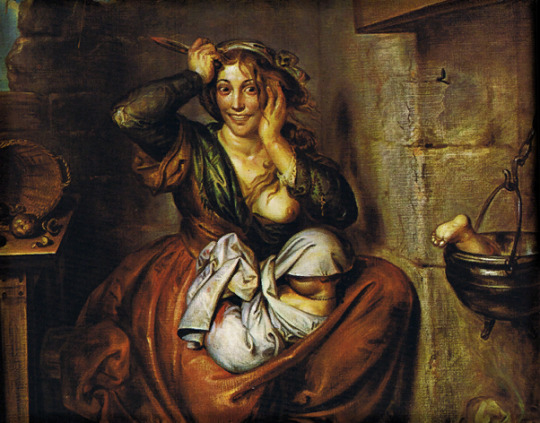
Title: Hunger, Madness, Crime Artist: Antoine Wiertz Year: 1853
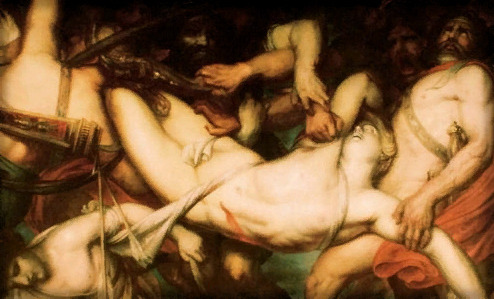
Title: The Greeks and the Trojans Fighting over the Body of Patroclus (Ver I) Artist: Antoine Wiertz Year: 1836

Title: The Greeks and the Trojans Fighting over the Body of Patroclus (Ver II) Artist: Antoine Wiertz Year: 1836
#amnesia a machine for pigs#paintings#art#amnesia#a machine for pigs#aamfp#amfp#the chinese room#frictional games#not reblog
33 notes
·
View notes
Text

Louis Gossett Jr., the first Black actor to win supporting role Oscar for playing the drill instructor in 1982’s “An Officer and a Gentleman” a few years after winning an Emmy for his role as Fiddler in “Roots,” has died, the AP reports. He was 87.
Photo Credit: Canadian Film Centre from Toronto, CA.
---------
#lougossett #louisgossetjr #unheardvoicesmag
6 notes
·
View notes
Text

Happy 87th Birthday to Louis Gossett Jr.
Born May 27, 1936, He is best known for his as role as Gunnery Sergeant Emil Foley in the 1982 film An Officer and a Gentleman, winning him the Academy Award for Best Supporting Actor. He also won an Emmy Award for his role as Fiddler in the 1977 ABC television miniseries Roots.
Gossett has also starred in numerous other film productions including A Raisin in the Sun, The Landlord, Skin Game, Travels with My Aunt, The Laughing Policeman, The White Dawn, The Deep, Jaws 3-D, Wolfgang Petersen's Enemy Mine, the Iron Eagle series, Toy Soldiers and The Punisher, in an acting career that spans over five decades.
17 notes
·
View notes
Text
I’m a theatre kid. And every show I’ve ever preformed or listened to or watched has taught me something important.
Shrek taught me to let my freak flag fly and to embrace my weirdness.
The Little Mermaid jr. Taught me that you should never try to keep dry ice in a crockpot (it cracks).
Fiddler on the roof taught me the importance of family and metaphors.
Les Misérables taught me to fight for what I think is right and to never back down.
Legally Blonde: The Musical taught me that giving up and going home isn’t always the answer.
In The Heights taught me that the pandemic was a blessing in disguise (it would’ve been whitewashed).
Argonautica taught me that albatrosses are huge.
Heathers taught me that everyone is struggling in their own way and suicide isn’t the answer.
Into the woods taught me that giants can be good and witches can be right, but it’s up to you to decide what’s good and what’s right.
Mean Girls taught me that you shouldn’t apologize for yourself or try to change yourself to fit other people’s perspectives.
If you think of more, feel free to add them.
4 notes
·
View notes
Note
hey! this is chance & here’s week 2’s prompt. pick one of your ocs. are they open to other people’s perspectives? do they go out of their way to learn new things?
I'll go ahead and talk about William since I'm writing a sort of origin story for him right now!
So William Byrne Jr is the son of William Byrne Sr, a fairly successful lawyer/notary in Rosemead. He was raised in a very traditional and conservative manner, but had an incident in his young teen years that really amped up that conservative upbringing (plot twist: it was a gay thing). So, naturally, he ended up being more closed-minded and comfortable with the status-quo.
Outwardly, at least.
Inwardly, William is livid. He's angry at himself and his family and his hometown. He hates how others look at him and how he has to put on a facade in order for the townspeople to treat him normally/fairly. It's through his sheer forced normalcy and his father's business/reputation that William was able to scrape by with a fairly neutral reputation. Once he started picking up his father's work and became a notary/lawyer himself, people started viewing him a teensy bit better.
Okay now that all that context is out of the way, onto the meat of the question:
William loves forgery.
He developed a strong sense of justice following the incident and isn't afraid to forge legal documents if he feels that the terms are unfair. He has a habit of going to taverns to listen in on gossip/idle chit chat and get to know the people in town both as a defense mechanism (how can I fit in here) and as a way to inform himself of what the situation is. "Okay I'm here for the Richardson Ranch acquisition, but is Lorry dealing with them fairly?"
While he's not going too far out of his way to learn new academic things like languages, history, art, etc, he's fairly invested in learning about the culture and laws (both legal and social) of where he's going. One, because it helps the business and two, because, again, youth trauma. He may be open to learning about new perspectives and the like, but it doesn't mean he'll agree with them. He might just nod politely and go "What an interesting perspective! I will be sure to not take that into account."
It's by doing this very thing that he ends up getting roped into becoming a pirate on the Ellina. When James and his crew dock in Stonesend, he ends up getting a taste of the "wild and reckless" freedom that Ellinacrew (as I affectionately call them) enjoy. For him, unapologetic and authentic self-expression was too intoxicating to turn down--as was Mr. Tall Dark and Handsome Emmanuel Cervantes. So, he does what any good 30yo repressed lawyer/notory Jr does: he runs away.
Anyways! Here's a little excerpt from the story:
They were knocking over the drinks without a care in the world, and William found himself once again enraptured. By now, the musicians had joined in as well, drumming and fluting away while the crowd supplemented it all with cheers and claps of their own. He fingers itched for his own fiddle to join in, and he cursed himself for leaving it at the inn. They weren’t supposed to be here anymore, so what were they doing still here and leaping from table to table? He looked around their original table, hoping for some sort of explanation. There were four others still in their seats: a man with brown hair who seemed to hate the song just as much as William did, his seemingly-amused friend who pat the poor man’s shoulder in apology, a taller man with a shaved head that lamented his spilled drink, and lastly— William wanted to throttle himself for not bringing his fiddle. Emmanuel was sitting at the table as well, hands clapping along and his face somewhere between fond, exasperated, and unsurprised. He seemed to be watching the fiddler more intently than the singer, or the boy, and something akin to jealousy, or desperation flared up in William. He looked around, searching for anyone that may have had a spare fiddle, or flute, or—or gods’ offcuts he would have even settled for a piano! Out of the corner of his eye, William saw the bartender put some cutlery away and, without thinking, he nearly lept over the bar and snatched two spoons from him. He ignored the bartender’s angry shouts and, steadying himself, quickly downed the rest of his cider. If he made a fool of himself, well, he wouldn’t be coming back. Taking the spoons in his hands, he took a moment to find the rhythm quietly to himself, before he began to play them loudly, in earnest. A few heads turned towards him, and he felt himself flush, but more importantly the table—Emmanuel’s table—still had not turned. He braced himself. ‘Oh gods William you must have dined with Seamus tonight,’ he thought to himself. Then, he leapt onto the nearest table and continued to play. Both the woman and the fiddler stopped, briefly, surprised that some outsider had joined their revelry, but William had almost forgotten about them. Emmanuel was looking at him, now, hands frozen just before a clap. William kept the rhythm. Emmanuel let out an errant laugh, and began his clapping once more. That seemed to tear the others out of their brief stasis, and their singing and dancing started up once more with even greater fervor.
2 notes
·
View notes
Text
I thought I’d share some fanfic recs from last year’s Fandom Snowflake Challenge, so we’ll see how long I remember to do this. [This is being scheduled in January 2023.]
Title: Fiddler’s Green
Author: Gadhelyn. Transformative Works Policy: Not known as of this posting.
Complete or In Progress: This fic is a work in progress. Dated: This started to post in October of 2021, and the current chapter [as of scheduling this post] was posted in December 2023.
Chapters: Currently 13. Word Count: Currently 62,792.
Technically, this is Part Two of a series - Farther From Hell - where Sirius/Severus is established during Sirius' post-Azkaban time in Part One. Personally, I don't think you absolutely need to read Part One in order to understand this; see note below the excerpt.
When Sirius goes through The Veil, he travels back in time to his teen body and has to try to not mess up the future too much by changing the events of the past. It's interspersed with Severus' POV in the future until Severus joins him in the past after being bitten by Nagini. As of chapter 13, Sirius and Severus are both trying to get back to their present day slash future time.
Note that there are some references to past and/or teen relationships; currently, Sirius/Remus and Avery Jr/Severus. Because the Sirius/Severus relationship was established in Part One and there’s the whole time travelling premise, some readers might feel like this fic is a bit lighter on the Sirius/Severus ship. I suspect this impression might change in the last two expected chapters, though.
Excerpt:
Because, Sirius Black realised just now, that’s where he was. Back at Hogwarts. With his friends. Sitting around under an alder tree, books carelessly scattered near them on the grass, surrounded by crowd of other chattering students: some were playing, one group tossed around a broom they were practicing flying with, girls trying on new colour-changing lip-glosses and holding mirrors up for one another by the lake… Few orange leaves on the trees, so it might have been September, early start of a new schoolyear.
So, this was his afterlife, then.
School.
To be honest—it was kind of a bummer.
Note: Part One is called "Dead Reckoning"; it's ten chapters and has 42,797 words. It has the Archive Warning of Rape slash Non-con and definitely starts out with what one could at the very least call hate sex - if not a rape to consensual sex arrangement - in the first two and and a half chapters. (While it's perhaps not entirely unrealistic to have "I'm not retarded" in 1990s dialogue, that may be something some readers want to prepare for in Chapter 4.)
The arc of animosity to not hating each other isn't easy, but it feels cathartic. Personally, the descriptions of 'this feeling' as inconvenient or peaceful at certain moments (from Severus) and struggling to say the word 'love' feels oddly satisfying, in a quoiromantic way. However, the first half of the fic might require a particular mental space in some readers.
2 notes
·
View notes
Text
Birthdays 3.6
Beer Birthdays
John Bird Fuller (1801)
Conrad Windisch (1825)
Herman Lay (1909)
Bump Williams (1954)
Bill Coffey (1970)
Five Favorite Birthdays
Michelangelo Buonarotti; Itallian painter, sculptor (1475)
Will Eisner; cartoonist (1917)
Moira Kelly; actor (1968)
Rob Reiner; actor, film director (1947)
Bob Wills; fiddler, bandleader (1905)
Famous Birthdays
Tom Arnold; actor (1959)
Marion Barry Jr.; politician,, D.C. mayor (1936)
Cyrano de Bergerac; poet (1619)
Connie Britton; actor (1967)
Elizabeth Barrett Browning; English writer (1806)
Pavel Chekov; Star Trek officer
Gordon Cooper; astronaut (1927)
Lou Costello; actor (1906)
Kiki Dee; pop singer (1947)
Dick Fosbury; high jumper (1947)
David Gilmour; rock guitarist (1946)
Stewart Granger; actor (1913)
Alan Greenspan; former chairman of the federal reserve (1926)
Robert "Lefty" Grove; Philadelphia Athletics/Boston Red Sox P (1900)
Merle Haggard; country singer (1937)
D.L. Hughley; comedian, actor (1963)
Kiri Te Kanawa; opera singer (1944)
Tony Klatka; rock musician (1946)
Ring Lardner; sports reporter (1885)
Stanislaw Lec; Polish writer (1906)
Lorin Maazel; orchestra conductor (1930)
Gabriel Garcia Marquez; Colombian writer (1928)
Ed McMahon; television announcer, sidekick (1923)
Wes Montgomery; jazz guitarist (1923)
Shaquille O'Neal; Orlando Magic/L.A. Lakers/Miami Heat C (1972)
Cookie Rojas; Kansas City Royals 2B/OF (1939)
Willie Stargell; Pittsburgh Pirates 1B/OF (1941)
Mary Wilson; Motown singer (1944)
2 notes
·
View notes
Text
From October 29th to November 2nd 2024
29-10-2024
THE SAINTS “Eternally Yours”; TOM ANDERSON & ALY BAIN “The Silver Bow”; JOHN LENNON “Imagine”; MERCURY REV “Boces”; MODEST MOUSE “Good News For People Who Love Bad News”; STAR TRIP “Velocidad”; SLY & THE FAMILY STONE “Dance To The Music”; NICOLETTE “Let No One Live Rent Free In Your Head”; SPIERS & BODEN “Vagabond”; CHUMBAWAMBA “ABCDEFG”; THE PASTELS “Sittin' Pretty”; MUDDY WATERS “Folk Singer”; CARNABY STREET POP ORCHESTRA “A Taste Of Excitement”
30-10-2024
THE FAT BOYS “Big & Beautiful”; SNOOKS EAGLIN “New Orleans Street Singer”; JOHNNY FLYNN “Country Mile”; SEPULTURA “Beneath The Remains”; R.E.M. “Automatic For The People”; GANG STARR “Daily Operation”; SAM & DAVE “Hold On, I'm Comin'”; CHUMBAWAMBA “Anarchy”; BELA FLECK “Tales From The Acoustic Planet”; RED HOT CHILLI PEPPERS “The Uplift Mofo Party Plan”; THE LA'S “The La's”; FIDDLER ON THE ROOF: ORIGINAL BROADWAY CAST “Fiddler On The Roof Original Broadway Cast Recording”
31-10-2024
APHEX TWIN “Drukqs”; SZA “S”; FRENZAL RHOMB “Meet The Family”; THE JAM “In The City”; RAINBOW “Rising”; ELLA FITZGERALD & LOUIS ARMSTRONG “Ella & Louis”; PHISH “Hoist”; BUZZCOCKS “Another Music In A Different Kitchen”; THE WEDDING PRESENT “Live In Valencia Arena, 18-11-1988”; WIRE “154”; FAIRPORT CONVENTION “Unhalfbricking”; ABBA “Super Trouper”; GENERATION X “Generation X”
01-11-2024
THE BEASTIE BOYS “Hello Nasty”; PRIMAL SCREAM “Screamadelica”; GUIDED BY VOICES “Do The Collapse”; ICE CUBE “Lethal Injection”; AL GREEN “Call Me”; BECK “Mellow Gold”; THE SMALL FACES “Ogden's Nut Gone Flake”; MIKE OLDFIELD “Crises”; GEORGE HARRISON “George Harrison”; THE UNDERTONES “The Undertones”; DINOSAUR JR “Green Mind”
0 notes
Text
Without Arrows
[3 stars] Nearly 13 years of Delwin Fiddler Jr. and his Lakota family’s life quietly unspools for you, often without comment, during this film. And it’s surprisingly hypnotic. The Fiddler family allowed the crew rather impressive and unembarrassed access. The points being made are also mostly inferred, even with Fiddler’s self-examining comments that come at uneven intervals. The dedication of…

View On WordPress
0 notes